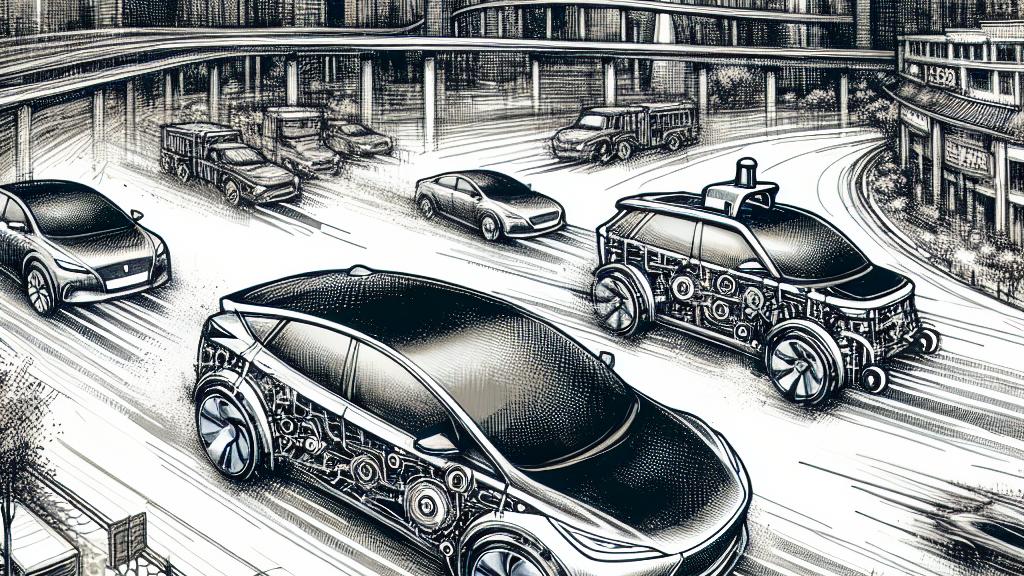China's Electric Vehicle Makers Compete in Autonomous Driving Innovation
Overview
- Chinese electric vehicle manufacturers are rapidly innovating to capture the Level 3 autonomous driving market.
- This fierce competition presents a significant threat to Tesla's established supremacy in self-driving technology.
- The exponential growth of China's auto exports highlights a strategic push towards global market leadership.

A Thriving Race in Autonomous Technology
In the bustling automotive sector of mainland China, the race for cutting-edge autonomous driving technology is not just heating up; it’s on fire! Major EV manufacturers, such as NIO and BYD, are plunging resources into developing advanced driver assistance systems (ADAS) that promise to meet the coveted Level 3 (L3) standards. This means vehicles can navigate complex routes—all while reducing the need for human intervention. Astonishingly, a recent report from Counterpoint Research predicts that by 2026, we could see around one million EVs on Chinese roads equipped with these sophisticated L3 systems. Imagine a vehicle that can seamlessly manage bustling city traffic or skillfully handle highway changes; this is the future that Chinese automakers are diligently working towards, catering to increasingly tech-savvy consumers.
Challenging the Tesla Paradigm
As these monumental advancements emerge, a thrilling competition takes shape—one that could upend Tesla's reign as the titan of autonomous driving. Analysts like Phate Zhang stress that to captivate consumers, Chinese manufacturers must integrate top-tier hardware and software into their vehicles. Currently, Tesla's Autopilot system is classified as Level 2, but the imminent arrival of L3 rivals poses a tough challenge. Picture stepping into a car that can not only evaluate its surroundings but also take intelligent actions like overtaking or navigating tricky intersections. This is exactly what the new breed of Chinese EVs promises. The rapid evolution of technology in China marks a pivotal shift, positioning these companies to potentially take center stage in the global automotive arena.
Export Surge and Global Ambitions
Furthermore, 2023 was a landmark year for China's electric vehicle industry, with exports skyrocketing by an impressive 63.7%. This surge illustrates a strategic maneuver to penetrate international markets, particularly where Western firms face significant hurdles. For example, the dramatic increase includes the export of 840,000 vehicles to Russia, as Chinese manufacturers boldly step into regions with high demands for electric vehicles. Companies like Li Auto and Xpeng are not just filling gaps; they are expanding their footprints into Southeast Asia and Europe. As domestic competition escalates, these innovations in autonomous driving technology coupled with burgeoning export activities highlight a defining moment in the automotive industry. China is not just participating; it is setting the stage for a transformative era where its influence in the global market could reshape the landscape profoundly.

Loading...